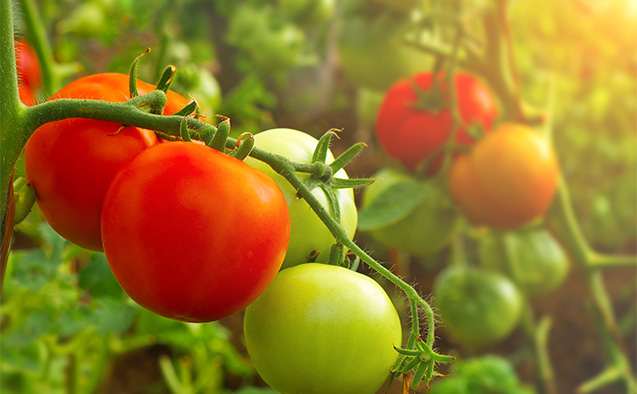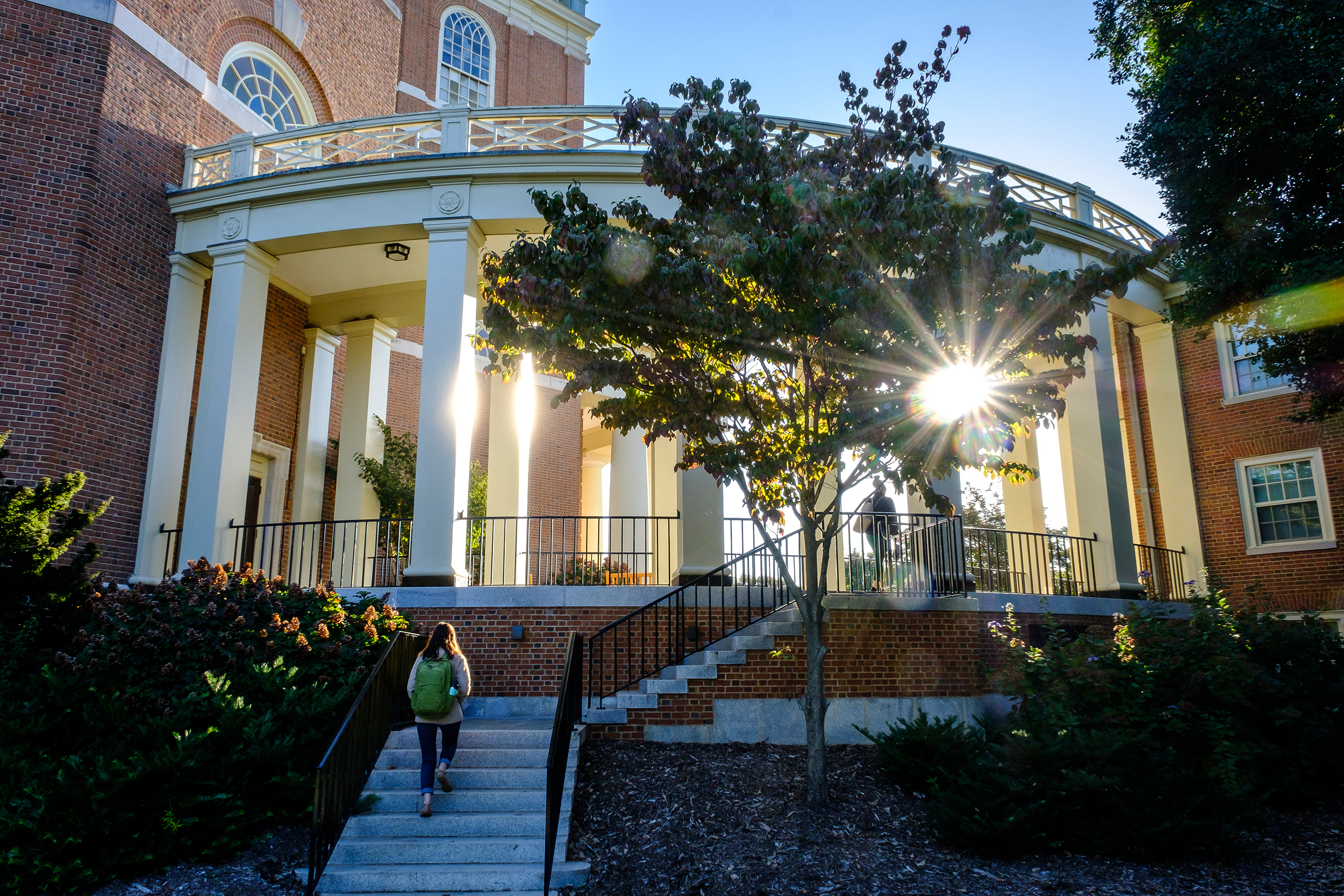$3 million NSF grant supports search for heat-tolerant tomatoes

When your tomato plants won’t bear fruit during the dog days of summer, a team of Wake Forest researchers led by Gloria Muday will be in the lab, trying to find a plant that thrives despite the heat.
A $3 million grant from the National Science Foundation will help determine why most tomato plants fail to pollinate when summer temperatures sit at 93.2 Fahrenheit for more than a few hours. The goal: develop more heat-tolerant tomatoes for future crops.

Gloria Muday
The grant supports a coalition of scientists including Muday, the university’s Charles M. Allen Professor of Biology and director of its Center for Molecular Signaling; pollen expert Mark Johnson of Brown University, who was an undergraduate student of Muday’s at Wake Forest; James Pease, an assistant professor of biology at Wake Forest; Ann Loraine of the University of North Carolina at Charlotte; and Ravishankar Palanivelu of the University of Arizona.
Tomatoes make the perfect study subject because the plant has varieties that can reproduce under heat stress. The aim is to map out how the reproductive genes work in these heat-tolerant varieties, insight that can help with breeding or engineering varieties that yield dependable crops even as global temperatures rise.
“Looking at the data over the last few hundred years, the average temperature is going up, there are higher nighttime temperatures, and short bursts of elevated temperature that are sufficient to prevent plant reproduction.” Gloria Muday
That heat causes the tomato blossom’s pollen tube to explode before fertilization, preventing the pollen from reaching the plant ovary and making those juicy red tomatoes.
Pease, who leads an evolutionary genetics lab at Wake Forest, will be looking for which genes foster heat tolerance in some tomato varieties. Pease has published papers on the evolutionary history of wild tomatoes, which originated as a desert plant in the Andes of South America. Their rapid adaptability has helped make tomatoes one of the largest cash crops for food in the world.
“Tomatoes have an interesting biological story, and they’re really important to the global food supply,” Pease said. “We have this context where species are spread out across various habitats. Do these domesticated varieties have any genetic similarities to their distant relatives in extremely hot places?”
The NSF grant also includes funding to expand a science outreach program to local high schools that Muday started with her students about a decade ago. The researchers and their students will be trained to teach plant genetics and the science of plant breeding and genetic engineering, focusing on the effects of temperature stress. Muday’s program has reached more than 1,000 ninth-graders in North Carolina, and has resulted in published research showing that college students who learn about genetically modified organisms (GMOs) and teach the science behind them to high school students are more likely to support the use of GMOs in our food supply.
“Genomic analysis of heat stress tolerance during tomato pollination” (NSF award number 1939255) runs through February 2024.
Categories: Research & Discovery
Wake Forest News
336.758.5237
media@wfu.edu
Meet the News Team
Wake Forest in the News
Wake Forest regularly appears in media outlets around the world.




